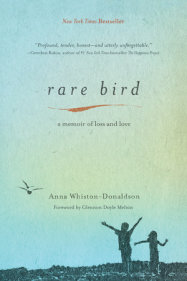It was a September hurricane that filled the ditches beside
the sidewalk, and in the still warm rain the day after the worst, we splashed in
the muddy water despite warnings not to take our shoes off. It was the normal thing to do, and kids,
still innocent of all the possibilities that dance around the edges of parental
warnings are determined to get as close to danger as they can, not even
recognizing it is danger.
Something like that happened to Jack Donaldson, twelve- year-
old son of Anna. It was something like
that because no one ever knew exactly what happened, only that he was swept
away in a rush of water during a late summer and windless but heavy rain storm. A still warm day, five children play in the
rain, only four of them coming home. Sometime
later Jack’s body is found in a culvert, and it would be cliché to say, and the
nightmare began, but it is true.
The Donaldsons were the perfect family, the kind we dream
about having when we are in the dreaming stage: one son, one daughter, father
and mother in love, Christian school and church-going model family doing it all
right. And we wonder how a good God could
snatch a sweet boy from his good family, but death does, and somehow that family
has to find enough breath and faith to live all the days that follow.

Anna documents the journey honestly, using the kind of language only grief permits, and all the words and stages that you have read about in textbooks come alive as you watch her and her family try to come to terms with the horror visited on them.
Listen to Anna as she tells you that “Grief is my work right now, and I’m afraid to skirt it or run away from it, because I surely don’t want to be stuck in this place forever. Everything I’ve heard tells me that if I try to stuff it down, deny it, or rush through it, I’m just going to have to deal with it later and then it will be worse.” (103) And later “Around this same time, I hear the terms collateral damage and secondary losses in some of the grief books I read and realize they give a name to the wider gulf between my friends and me as well as the many other losses we discover after losing Jack.” (178)
For several years, my husband and I led a grief recovery group in our church, and watched God heal broken people. Oh, the pain never goes all away, but over time the wounds can heal, especially when the one grieving finds people who will listen without judgment, who understand in some small way.
Near the end of the book Anna tells of a group of women she
met with monthly, a club she never wanted to, they never wanted to, belong to,
of women who lost a child. She writes it
this way, “I’m not sure how sharing the broken, hurting pieces of our lives helps
us, but it does. Rather than wallowing in despair, this group of scrappy women
cheers each other on, determined to find a way to live the lives we have
now. And in sharing our loss we somehow
gain. That is the mystery of a community
of grievers.” (186)
So who should read this book – we all should. Donaldson shows a path through to those who
might face this pain one day. However,
she also shows the rest of us what happens behind closed doors and equips us to
better come alongside and offer informed support. Too often, well-meaning people say “Just give
me a call, if there’s anything I can do,” but the sufferer does not even have
the energy to lift up the phone if they could identify something they
need. And well-meaning people, too
often, give the grieving a few weeks, before expecting things to be “back the
way they were.” And they ever really
will be.I want to say, “Suck it up and read the book,” because I know some people avoid anything that might hurt, and I know that sounds rather harsh and uncouth, but it’s not a bad idea. And then talk about what you have learned with other people…and Jack’s death and Anna’s pain might in some small way be redeemed.
No comments:
Post a Comment